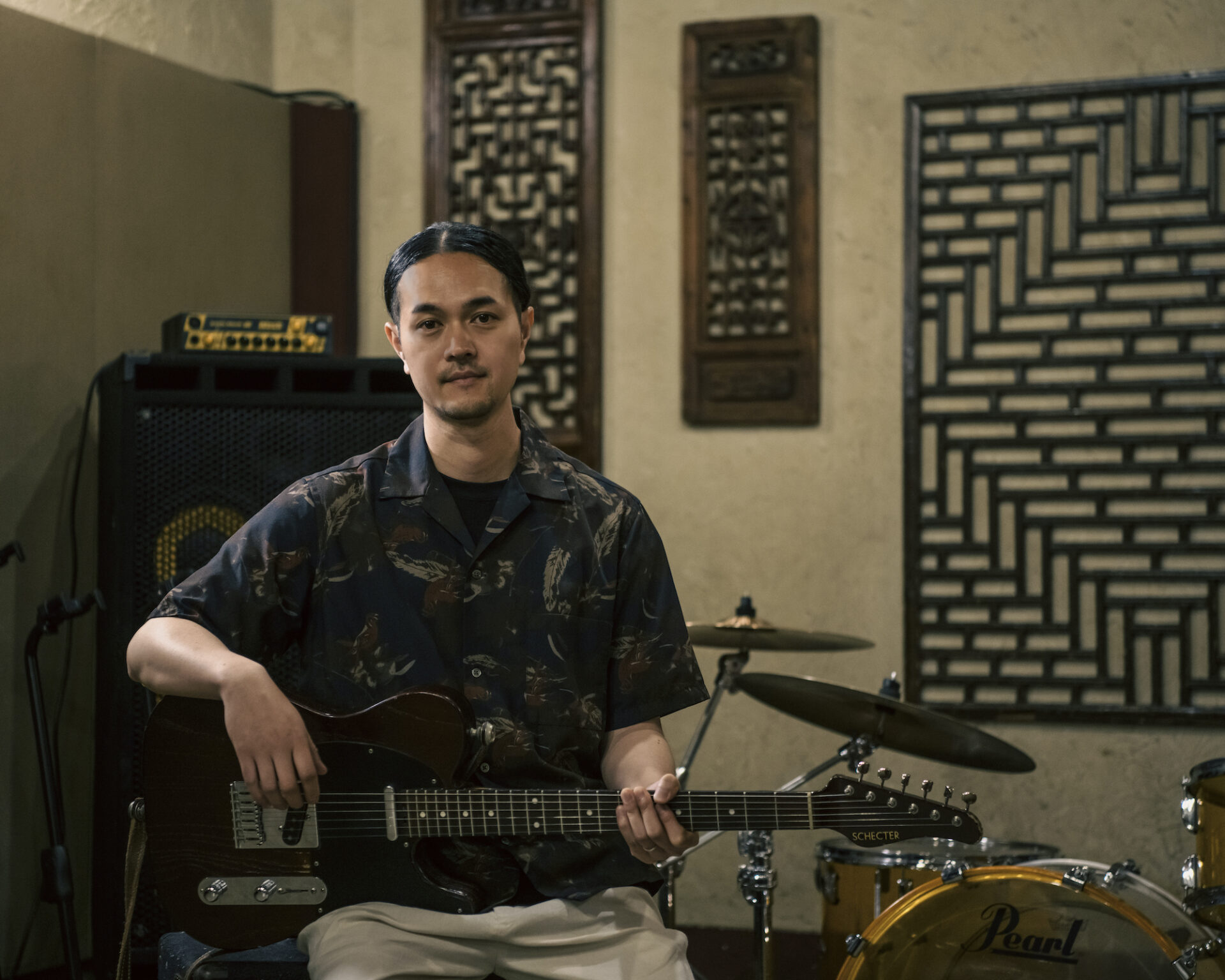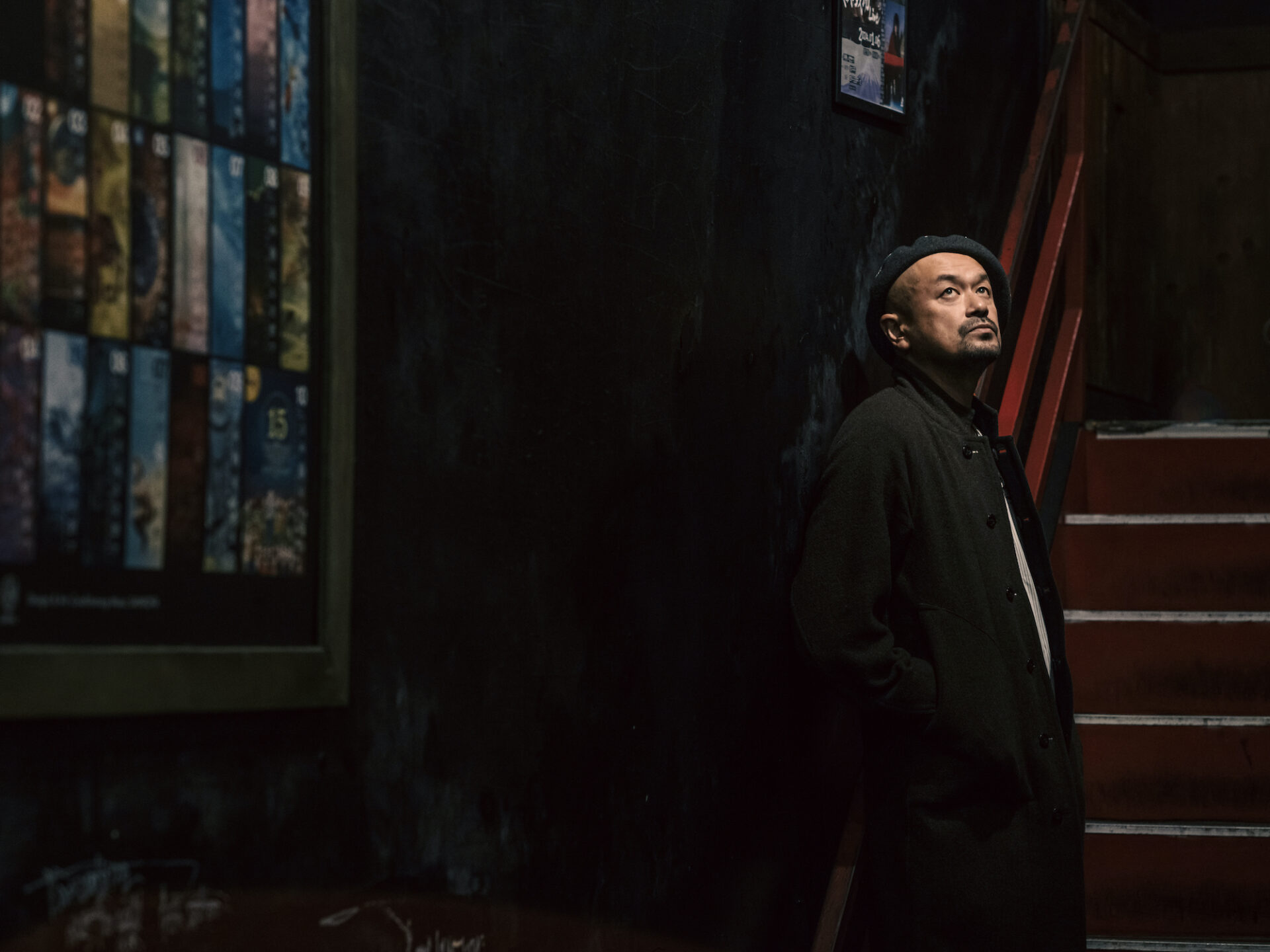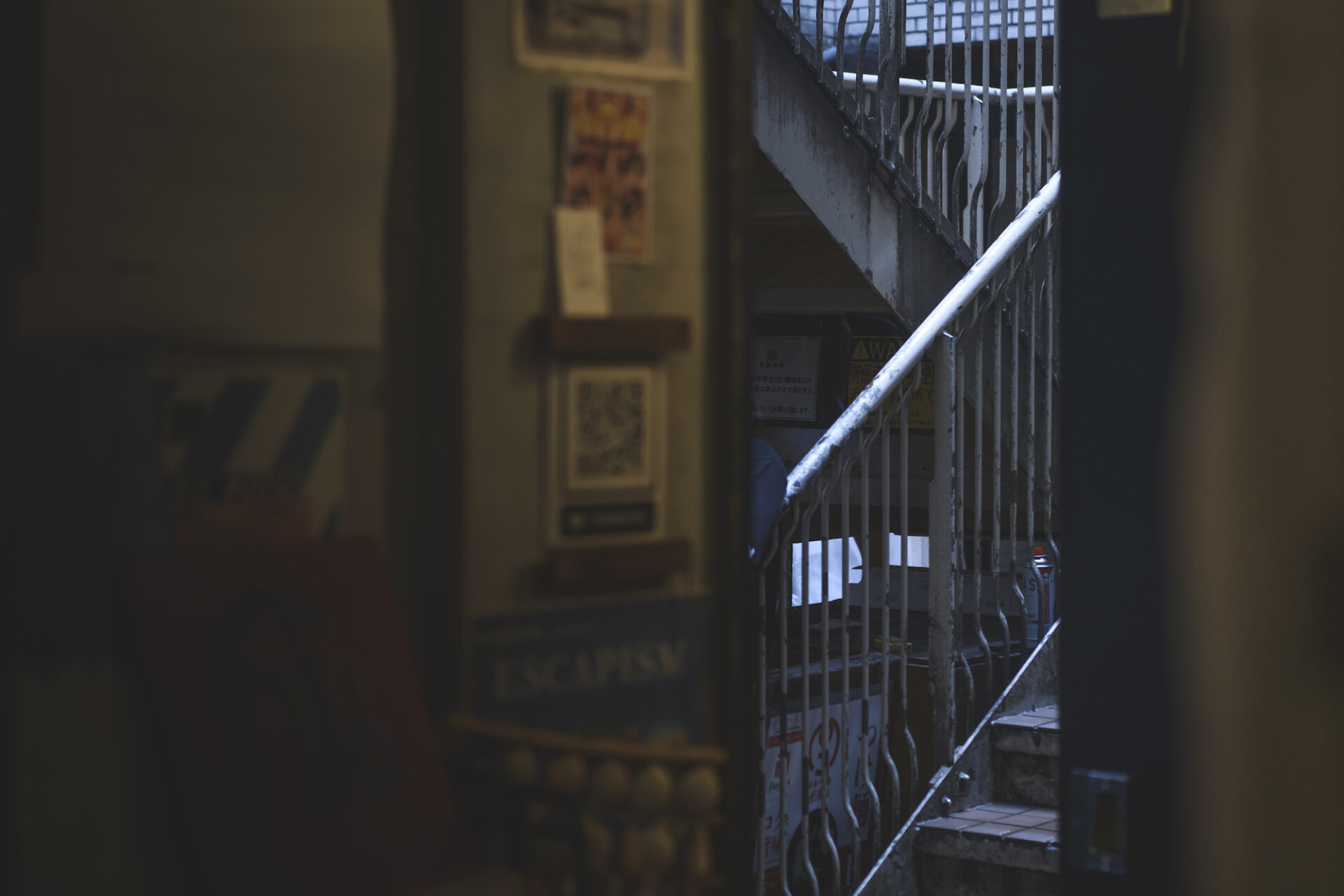
2025-07-24
Vol.19
Guitarist
MEGURI
-
How to Make Your Dreams Come True
-
Pursuing the Team's Dream, Not Mine
-
Creating Synergy by Mixing Culture and Generation
-
"Selling Well": What Does It Really Mean?
-
Music as an Opportunity to Experience "Dynamic Impression"
-
Knowing Yourself through Relativity
“What is your dream?” It’s a common question — but one that many people find difficult to answer on the spot. Overwhelmed by the busyness of everyday life, they struggle to envision a long-term dream, let alone find the time to make it a reality. Frustrated by this, some might begin to believe that they’re no good. It’s often said that such negative emotions prevent people from realizing their dreams.
But is that really true? Aren’t there many different paths to making a dream come true? This dialogue begins with that very question. Today’s guest is MEGURI, guitarist of the three-piece instrumental band paranoid void. A musician who never gave up on her dream and eventually went on to perform at one of the world’s biggest jazz festivals shares her narrative: how she approached her dreams, what it took to pursue them, and the emotions she experienced along the way.
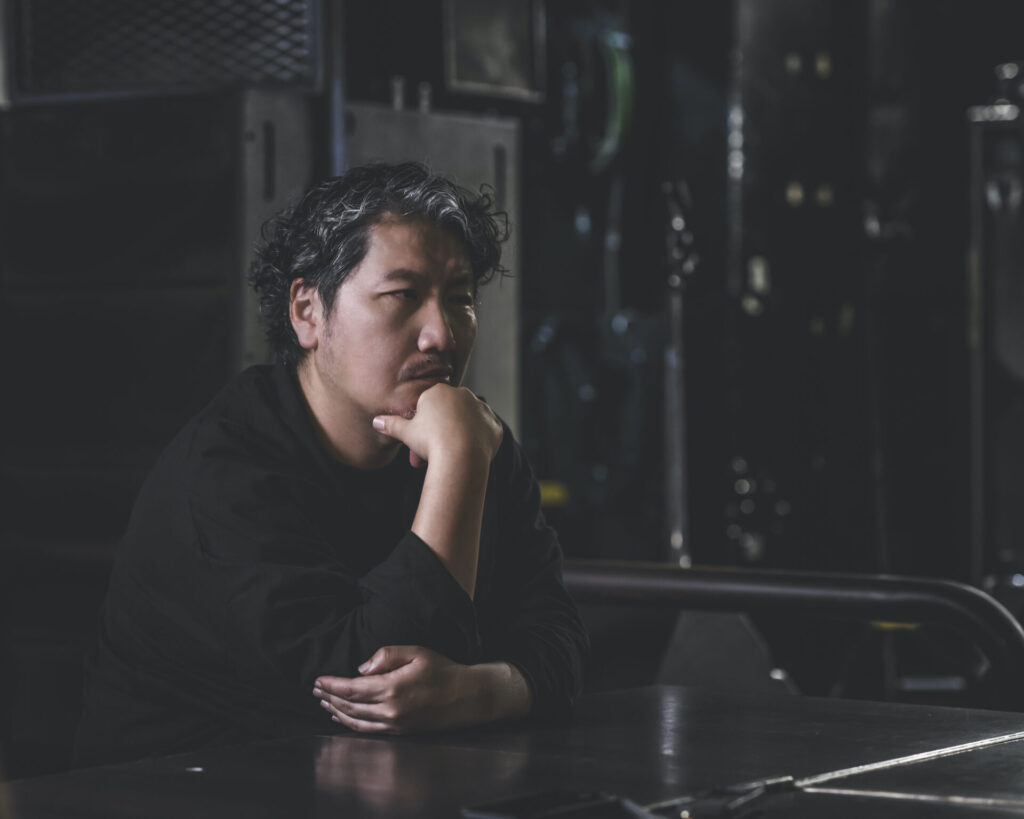
“If the only way to sustain a music career is by creating and selling songs that cater solely to the mainstream, I feel that’s a real loss.” (Shigeta)
——To begin with, could you please introduce Ms. MEGURI?
Shigeta: While scrolling through Instagram, I came across a clip of a cool band performing at a music festival called the Montreux Jazz Festival. There was something about the fact that they were an all-female, three-piece instrumental band that really caught my attention. The band is called paranoid void, and MEGURI is their guitarist. Later, when I checked out their website, I found that they had played a joint gig with LITE — the band that Mr. Takeda plays in. Mr. Takeda, the guitarist of LITE, once appeared as a guest on our Idealism series. That gave me a vague sense that we might be able to collaborate someday.
——The episode really reflects your taste in music.
Shigeta: I believe that listening to music to feel excitement and emotion is essential for people to maintain a mentally rich state. That’s one of the reasons I’ve been exploring the idea of beauty care through listening. I became really curious about what might happen if I offered customers the opportunity to experience the paranoid void’s sound. So, I reached out to them through their website and expressed my interest in organizing a music event together.
——How did she respond?
Shigeta: We decided to talk sometime, and we ended up meeting at a café in Umeda when I was in Osaka on business. During our one-hour conversation, I told her about our media project, Idealism, and asked if she’d like to appear on it as a guest someday. That’s what brought us here today.

MEGURI: I had been using OSAJI’s products even before I actually met Mr. Shigeta, and I really liked the brand’s concept and the way they present themselves. That was part of the reason I felt like meeting him when he reached out. While we were talking, even though what we do is completely different, I sensed a kind of similarity in how we see and perceive things. I think that’s also why I felt it would be fun to do something together someday.
Shigeta: I really appreciate you saying that.
——What kind of topics do you want to discuss with Ms. MEGURI?
Shigeta: Back in the ’90s, when I was in the music industry, there were many million-selling and double-million-selling artists, and some even said that music that couldn’t reach those numbers was meaningless. As musical tastes were heavily concentrated around a single mainstream, those who tried to do something different suddenly found themselves without a place to go, and one after another, they ended up giving up on their music activities. I was one of them.
But even so, there were still people who wanted to keep doing music. I don’t think becoming a star or getting rich is the only motivation to continue. If the only way to sustain a music career is by creating and selling songs that cater solely to the mainstream, I feel that’s a real loss. When I saw paranoid void’s song on Instagram, I was genuinely moved to discover that there was another rising star. But when I talked about them with people around me, no one knew of them. That was the moment when I realized once again that how cool a song is and whether it sells well aren’t always the same.
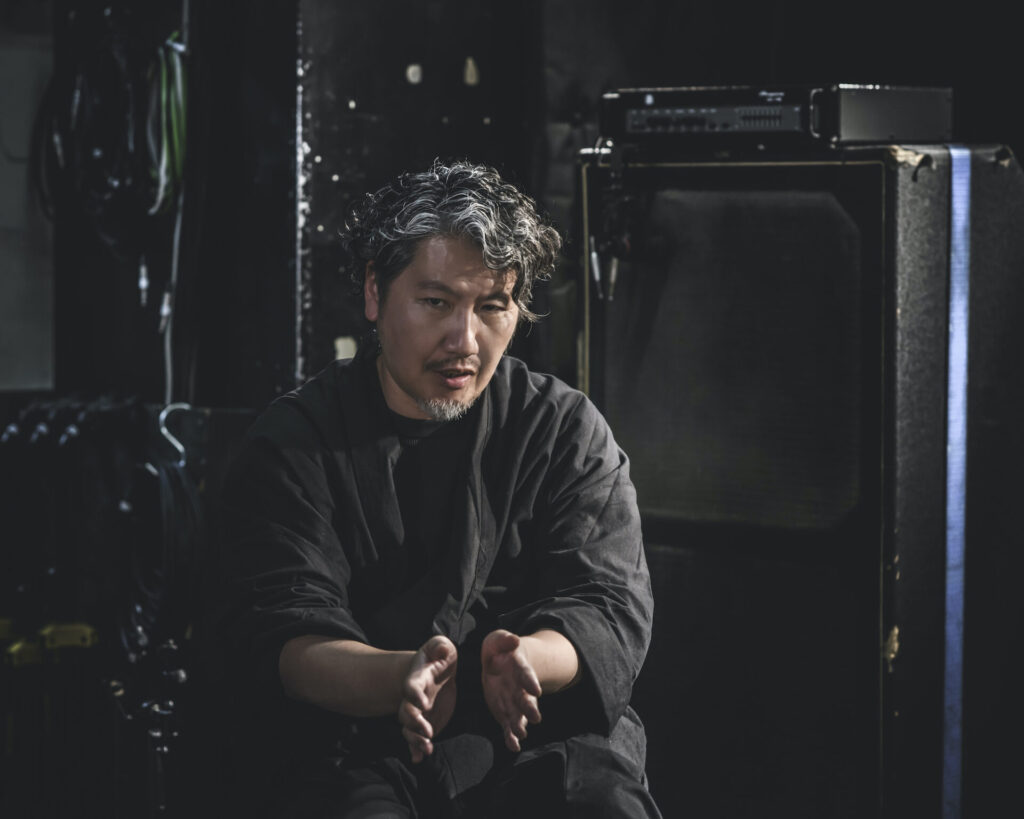
In product development, I have often found that the more we pursue the vision of who we want to be, the more we drift away from customers’ needs. That said, this doesn’t mean we should stop pursuing our vision. In many cases, customers love our products because of our commitment to that vision. If we had only made and sold products solely for sales, people like Ms. MEGURI would never have taken an interest in us, even if we had reached out to collaborate.
With these thoughts in mind, what I want to ask Ms. MEGURI today is what kind of motivation has kept you and your bandmates making music over the years, and how you plan to approach music moving forward. It’s not so much about how to make your dreams come true, but more about how you can continue doing what you love over the long run.
——Ms. MEGURI, given this background, how do you see the difference in the environment surrounding music between the ’90s and today?
MEGURI: I can’t make a direct comparison because I never experienced the music scene in the ’90s myself, but I do think we live in an era where you can sell almost anything if you want to. For example, you can make something go viral on social media platforms like TikTok. The word “buzz” reflects a trend where people are increasingly focused on being recognized. I don’t completely deny that approach, but it’s really not my cup of tea. It feels like you’re leaving everything up to others. If creators don’t have a solid identity, I feel their content will just be consumed and fade away.
——So, you think we live in an era where creators are strongly required to have their identities in various aspects, including why they pursue music and what they make songs for?
MEGURI: Yes. Otherwise, I’m afraid they’ll be swept away by a wave of consumption.
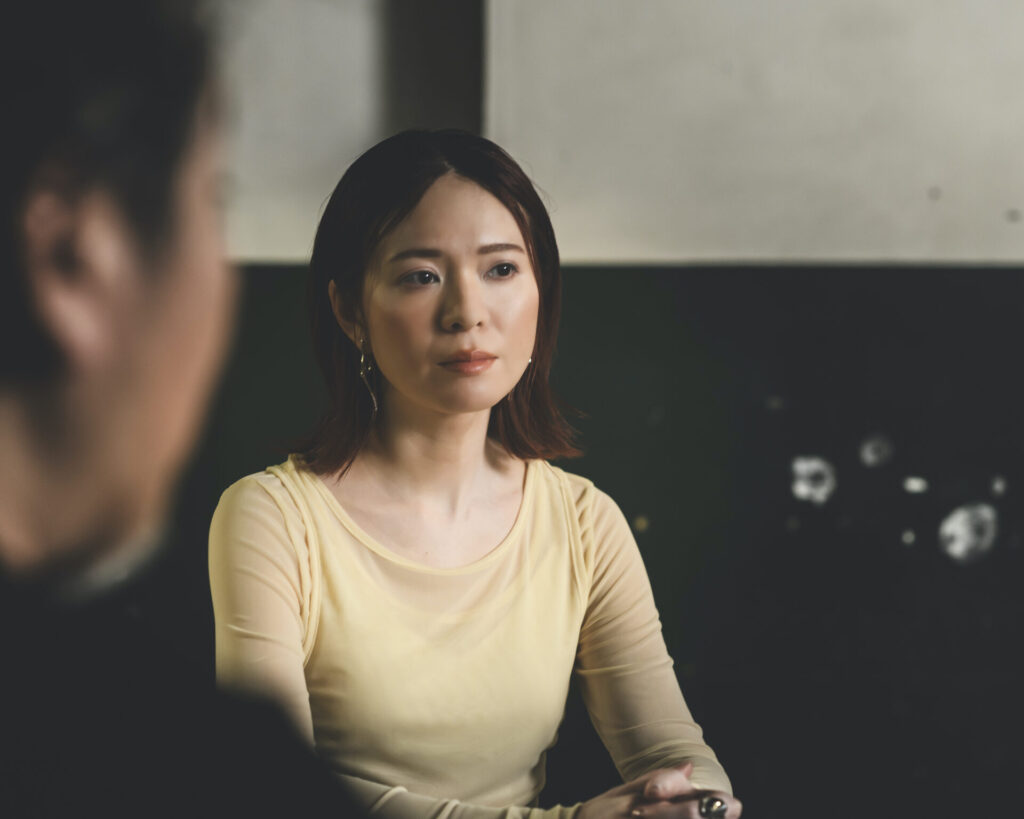
“As we continued our activities, we gradually gained confidence in our skills and sense of style. As more people started supporting us, our motivation shifted in a different direction. (MEGURI)
——Between your desire to have more people listen to your music and your desire to express yourself, which is stronger?
MEGURI: This year marks 12 years since we started our band.
Originally, our style was more introverted. Our self-expression was always inward, and it felt kind of gloomy. But as we continued our activities, we gradually gained confidence in our skills and sense of style. As more people started supporting us, our motivation shifted to a more extroverted one — we began challenging and enjoying new things more and more. With these changes, it might be a stretch to call them dreams, but we began to have desires like, “We could participate in that event next time,” and “We want to perform live at that place.” Recently, it feels like we have been steadily achieving these small goals one by one and visualizing new dreams.
——What was the main reason your style shifted from introverted to extroverted?
MEGURI: I think it’s because we started interacting and connecting more with people from diverse backgrounds. Signing with a label is one thing, and having more people who listen to our music is another. I believe the shift was largely influenced by the presence of others around us.
——Was your dream to become a musician from the beginning?
MEGURI: After all, becoming musicians is basically self-declared. It’s hard to define exactly when we can start calling ourselves musicians. In my case, I just kept going, and somehow it ended up this way.
When you keep doing one thing for a long time, it eventually becomes a point of connection between you and society, and at some point, turning back no longer feels like an option. Especially when you have people supporting you along the way, you naturally start thinking about how you can make them happy. These days, I’m more focused on realizing our dreams as a team than on pursuing dreams of my own.
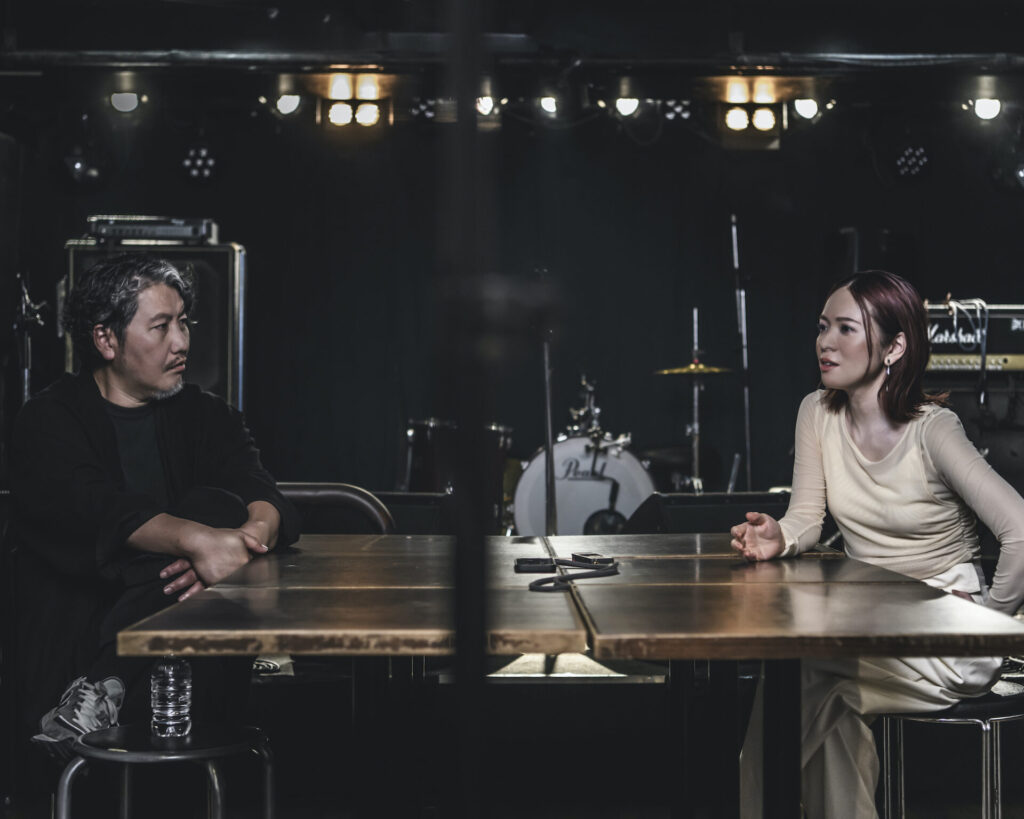
Shigeta: I would like to ask the reason why your music was introverted and you felt gloomy. Was it because you had a strong sense of self-denial at the time?
MEGURI: There was surely that tendency. It’s hard to describe in words, but it’s like I play music to purify myself. It is exactly self-satisfaction.
Shigeta: Recently, I’ve started visualizing my daily activities as a kind of graph, which ended up taking a pyramid-like shape. At the base of that pyramid is the act of confronting my inferiority complexes. Whether it’s working in the beauty care business or developing cosmetics, what I ultimately arrive at is the question of how to address those complexes. Once I complete that phase, I can move up to the next stage: how to connect with society. At the peak of the pyramid is the desire for self-expression. Beyond that, like a cloud hovering over the pyramid, I believe there is a stage involving how we recognize and accept one another.
The reason I decided to start visualizing what I do in the first place is that I sometimes lose track of what I’m doing because I’m drawn to so many different things that I easily get scattered. All of my actions are based on instinct and intuition, and I’ve never set a clear purpose or process in advance. I am where I am today simply as a result of continuously following my interests and curiosities as they arise.
MEGURI: Maybe I’m the same way.
Shigeta: When I was playing music, I was constantly plagued by self-doubt — thoughts like ” My performance must be terrible” or “There’s no way anyone wants to listen to my music” kept running through my mind. In that sense, my music career was more about confronting my complexes than expressing myself.
MEGURI: Right, that really doesn’t sound like self-expression.
Shigeta: The desire to express yourself truly arises when you witness moments that bring others delight. Suddenly, you start accepting other people’s expressions more positively, or you feel like, “Let’s do something together,” and you find joy and richness in daily life. However, it took me a long time to reach that point. Perhaps it finally began to click for me just about a year ago.
MEGURI: Oh, I’ve only just started feeling that way myself, too.
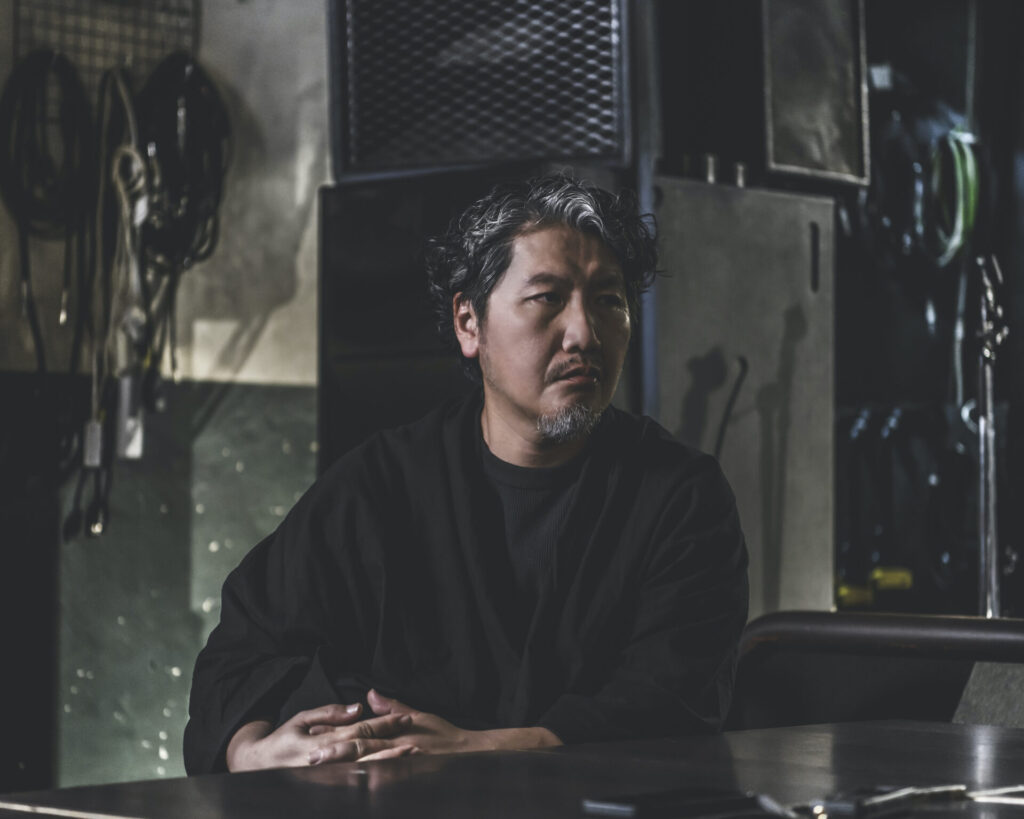
“Looking ahead to the future, I think mixing different elements will be key.” (Shigeta)
——I imagine there are many people out there who once dreamed of becoming musicians but gave up and chose a different path. What do you think has been the driving force that kept you pursuing music?
MEGURI: I just never had the right moment to quit. I fully understand how it feels for members of disbanded bands or those who’ve had to leave a band. Being in a band means different individuals come together to do the same thing, and that takes a lot of mental energy and time. Keeping a band going requires real dedication. Looking back, I feel incredibly fortunate and blessed to have the bandmates and the people around us. I’ve been able to keep going, thanks to them.
Shigeta: But whether or not you can meet the right people really depends on your own talents and abilities. I think there are many people who had the chance but could not seize it.
MEGURI: I’m good at focusing on the positive sides of people. When I meet someone I feel I’ll have a long relationship with, I always try to pay attention to their strengths and qualities I can respect. Since you can’t do a band alone, being tolerant of others is really important.
——What did you hope to talk about with Mr. Shigeta today, Ms. MEGURI?
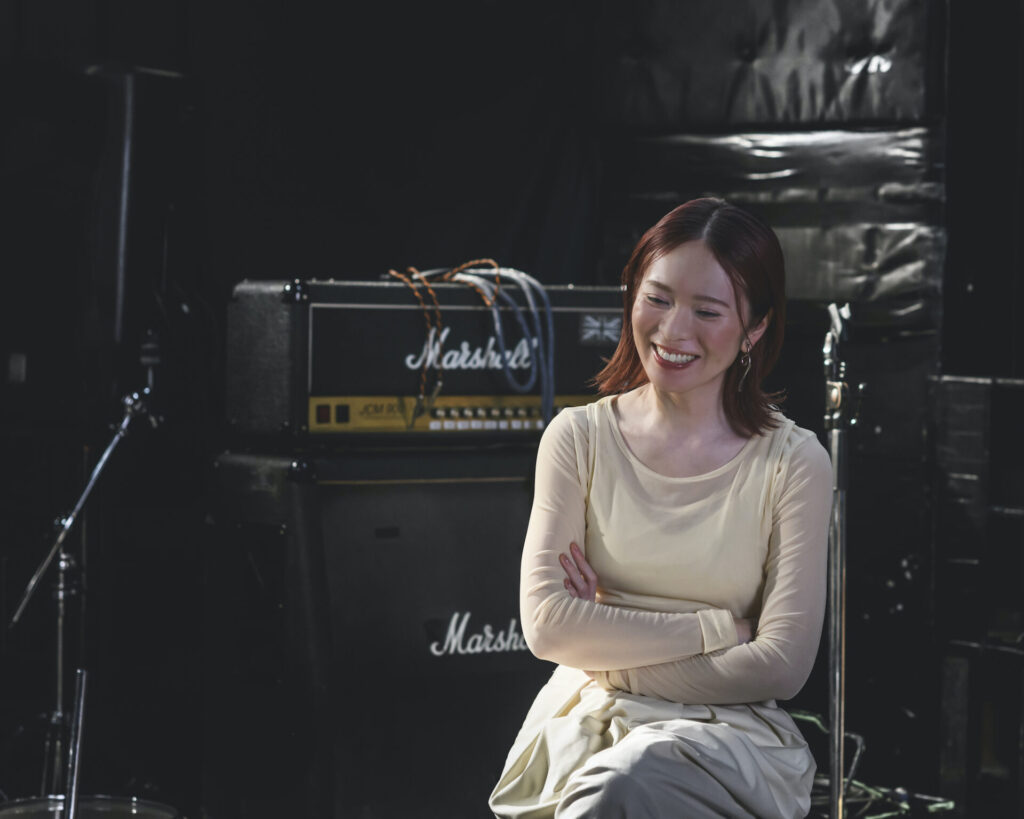
MEGURI: Mr. Shigeta works across different fields, drawing on his knowledge and experience in the beauty care industry. I’d like to hear what he’d like to do with us.
Shigeta: As I mentioned at the beginning, I’d like to organize a music festival together. It doesn’t have to be a large-scale event — to be honest, it doesn’t even have to be a music festival. What I have in mind is something more like a cultural festival.
Looking ahead to the future, I think mixing different elements will be key. You might have music in one area, art in another, and just beyond where people are dancing, there might be others spray-painting on walls or enjoying a meal. The image I have is of a festival where a wide range of cultures coexist all at once. That said, it doesn’t mean I want to do it with just anyone. I want to create it with people who share the same vision. So, whenever I find someone who feels like a potential collaborator, I try to stay in touch and meet with them regularly.
Ms. MEGURI, you mentioned earlier that it is your tolerance that has made you fortunate to be surrounded by good people. In my case, it’s the act of connecting people that has shaped who I am. When I meet someone and feel they might resonate with another person, I introduce them. That often sparks a kind of chemical reaction around me, which in turn gives me strength and energy. This process has truly shaped who I am, and I want to continue it as my life’s work.
Moreover, I want to say this because I might be the only person trying it, but I want to challenge the mixing of different generations. The current divide between generations is quite severe. Older generations tend to regard animation and Vocaloid as something superficial and shallow. On the other hand, young people often feel, “We don’t care about what old men say.” In my childhood, there were many adults who, once they thought, “Oh, this young person shows promise,” would help young people to secure venues to perform. Through connections with such adults, I discovered music like Led Zeppelin, which greatly inspired me. So, I get along with people in their 50s, 60s, and 70s, and I also want to collaborate with teenagers whenever possible. If I extend a wide-open invitation, I believe exciting synergy will emerge. That’s also why I want to make the festival happen.

MEGURI: That sounds great! Let’s do it.
——The topic of generation just came up. What age group makes up the largest part of paranoid void’s listeners?
MEGURI: While we do have some university students and people in their early twenties, the majority of our listeners are in their thirties and forties. When it comes to listeners from China and Taiwan, our audience tends to be younger overall. We have more female listeners in the UK, and the age range among male listeners is fairly broad. That’s how it breaks down in terms of age, but overall, our core listeners are people who stay tuned into niche music and culture.
Shigeta: For me, I have an impression that your music is something that connects different genders.
——Have you made any particular financial efforts to keep your music activities going? Balancing music activities and economic stability is a challenge many musicians face.
MEGURI: I don’t know if I’ve succeeded in striking the balance, but the fact is, we need money to keep doing music the way we want to. We strongly believe that without a proper setup on a stage of a certain size, we can’t deliver the sound we’re aiming for. So, how can we secure that kind of environment? That’s something we’re still figuring out through trial and error, including the process. It’s not something we can just dismiss by saying, “As long as it’s fun, that’s enough.”
Shigeta: Including the strategies you’ve employed, figuring out how to make it work is one of the biggest concerns for the younger generation who wants to pursue various career paths.
MEGURI: I can’t offer any helpful advice, but I do think there are plenty of ways forward. After that, it all comes down to your own sense and taste. I think you shouldn’t overthink it — just try something and see where it leads.
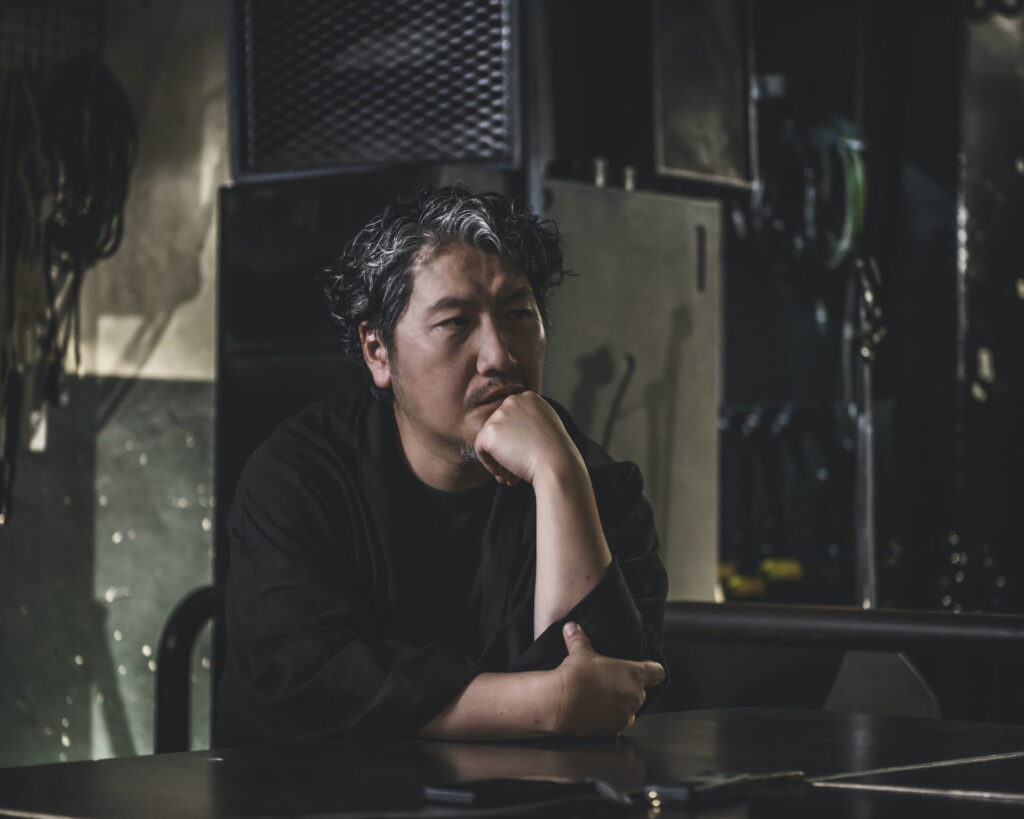
Shigeta: Let me go off track a little bit. Vocaloid is a music style that doesn’t require band members. What’s more, it doesn’t require much playing skill either. You may need to know how to use a PC, but you don’t have to have guitar techniques or vocal ability. In a way, Vocaloid offers an outlet for those who struggle with playing instruments, singing, or feeling self-conscious about their appearance. What are your thoughts on Vocaloid?
MEGURI: Vocaloid culture…well, for me, I’m the kind of person who thinks, “Others are others, and I’m me.” To be honest, I don’t see it particularly as good or bad. I don’t think forming a band is the only or best style in music, either. I think orchestras are wonderful, and so is a cappella. The last time we toured the US, I had a chance to witness local children and adults singing gospel together in a church in Los Angeles, and it really moved me. I couldn’t tell how good their singing was, but their energy was incredible. If you can have that kind of musical experience, then it doesn’t matter whether it’s a band, Vocaloid, or choir. Each style has its own appeal, and there’s a reason that people choose what they do. So, I think you should just do whatever you love.
Shigeta: I realized once again that your openness really defines you.
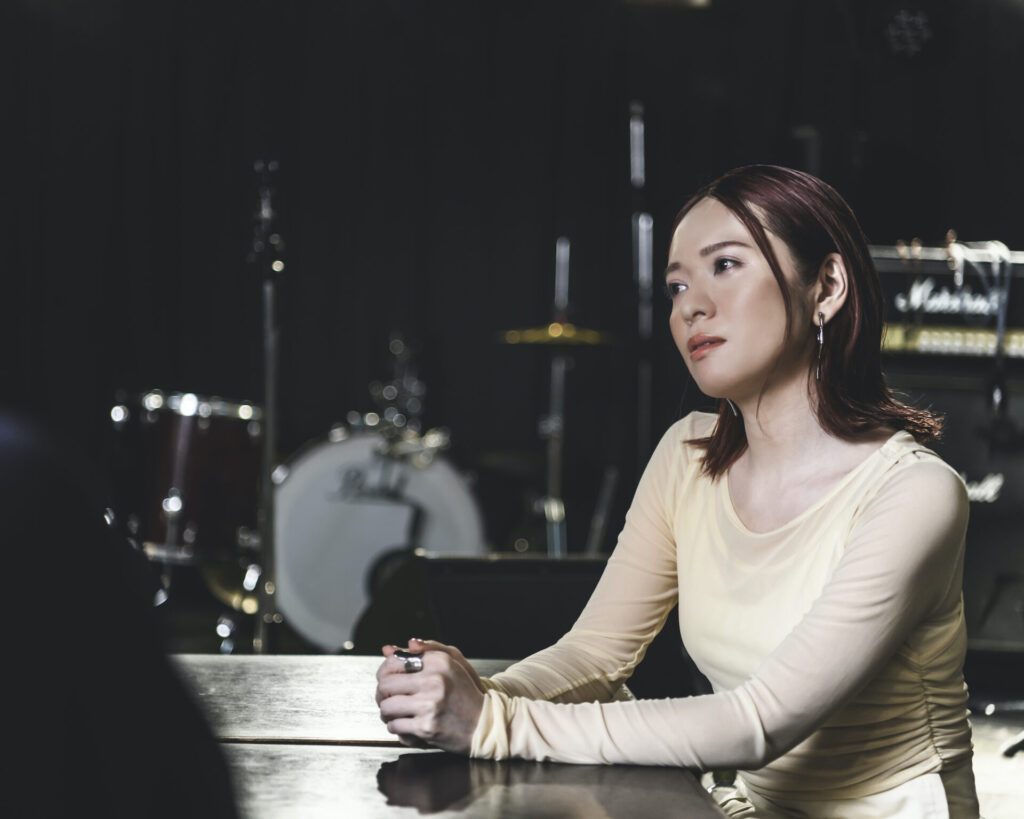
“The humidity and the changing of seasons — We grew up in that environment, so the melodies and song structures we naturally create might come across as Japanese.” (MEGURI)
Shigeta: Some of paranoid void’s early works include vocals. How did you come to adopt an instrumental style?
MEGURI: We shifted to an instrumental style because we felt our music sounded much cooler without vocals. Also, the period when we used vocals overlapped with the time when our mindset was more inward-focused, and we got tired of it ourselves.
Shigeta: You mean the message in the lyrics felt too heavy?
MEGURI: Yes, the message felt heavy, and it felt like the more we played, the more exhausted we became. So, we thought it might be better to go without vocals. However, some fans say they prefer the music from that time, and since that album allowed us to tour North America, we don’t deny it or regret it at all.
Shigeta: One thing I notice when I listen to paranoid void’s music is that the sound feels very Japanese. I sense a strong element of Japonism, in a way.
MEGURI: That’s something we often hear from listeners overseas. I think it may have something to do with a subtle influence from Japan’s climate — the humidity and the changing of seasons. We grew up in that environment, so the melodies and song structures we naturally create might come across as Japanese.
Shigeta: I guess it also carries a certain sense of sadness.
MEGURI: That might be true.
Shigeta: How is your performance received overseas?
MEGURI: People are often surprised at first by how forcefully we play. On top of that, we’re an all-female band performing technically complex music, which may come as a surprise to some people.
Shigeta: Do most people at your live performance already know your music?
MEGURI: Yes, there are definitely people who already know our music, but I guess more people originally come to see other bands and end up discovering us for the first time.
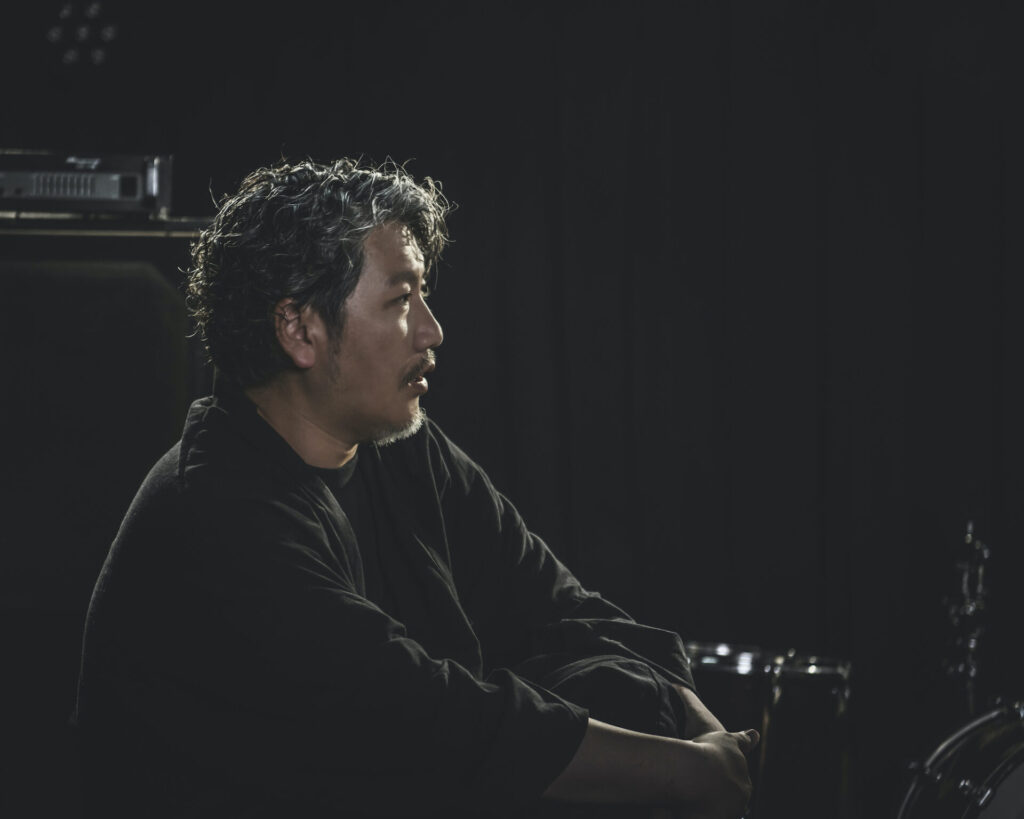
Shigeta: How did you end up performing at the Montreux Jazz Festival in Hangzhou, China, last year?
MEGURI: We received the offer through a European agent we first met during our UK tour. She traveled all the way from France to see us, bringing a handwritten letter expressing how much she loved paranoid void. When we met and spoke with her, she turned out to be incredibly genuine, and we felt we could trust her. We began working together, which eventually led to our appearance at Montreux. The label we recently signed with, meanwhile, has a strong network across Asia, including China, and we’ve since received offers from festivals there as well.
Shigeta: Have you noticed any differences between Japan and overseas in how your activities have expanded?
MEGURI: I think the fundamentals are basically the same. If you put on a good show, word-of-mouth from the audience helps bring in new fans. But there might be a difference in how the connections are made and how quickly that happens.
Shigeta: Don’t you think paranoid void is in a really cool position — being an all-female three-piece band with touring experience in the West and across Asia?
MEGURI: I don’t really see it that way. To be honest, I wish we were selling a little bit more (laughs). If we had a few more accomplishments under our belt, I think it would help people around us feel more comfortable.
——So, you mean you want to make the people around you happy, right?
MEGURI: That’s right. Expressions like “selling well” or “making it big” can mean many different things. It could mean earning a lot of money for everyone involved. But, for example, when we perform on the main stage of a major European music festival at night — inviting all our team members and collaborators and giving them a great show — I think that’s also a way to give back.
——Is that your dream now?
MEGURI: It’s more like a goal than a dream.

“For me, the power of music feels similar to the kind of reset you experience after a sauna.” (Shigeta)
——Mr. Shigeta, you mentioned earlier that you’d like to organize a music festival with Ms. MEGURI. When you consider culture as the core, how do you view the meaning and impact of bringing music into it?
Shigeta: To begin with, I’m not really a fan of music festivals. They tend to have an atmosphere that feels unwelcoming to anyone who isn’t a music lover, and the way people are expected to enjoy them is somewhat tailored to that kind of audience. I think the bar is set pretty high for those who aren’t that into music. For me, the power of music feels similar to the kind of reset you experience after a sauna. You push your body into a heightened state through intense heat, which activates the sympathetic nervous system, and then you relax in cold water or fresh air. After that, you reach a state of revitalization. I think music has a similar effect.
Working with music in the context of beauty care, people tend to assume I pursue healing or ambient sounds, but that’s not what I’m looking for. I’m not looking to help people just chill out, but I want them to get fully excited. To me, that’s the true power music holds.
Since ancient times, people have danced during difficult times. When you dance, your spirits naturally lift, and you start to feel that the little things don’t matter as much. Of course, it doesn’t solve all your problems, but music has the power to make you think, “Somehow, things will work out.” That’s exactly why I want music to play a role in the festival I’d like to organize. What I think Japan needs most now is not the static emotion you get from art but the kind of dynamic emotional energy that music can offer. I want music to be part of it as a way for people to experience that kind of energy.
MEGURI: Since I usually come up with ideas through music, what you just said gave me a really fresh perspective. This is exactly what people mean when they talk about “seeing the world in high resolution.”
——Mr. Shigeta just said that listening to music is similar to the feeling you get after a sauna. Do you feel the same way as a performer?
MEGURI: I put my full effort into performing live, and my sympathetic nervous system is fully activated. But very rarely, I find myself in a relaxed state even while the sympathetic nervous system is active. At those moments, I feel truly revitalized.
Shigeta: It might be something similar to the state of being “in the zone.”
MEGURI: That might be true. It feels like I shift into high gear, and I feel great.
Shigeta: The music of paranoid void is great content when you want to activate your sympathetic nervous system.
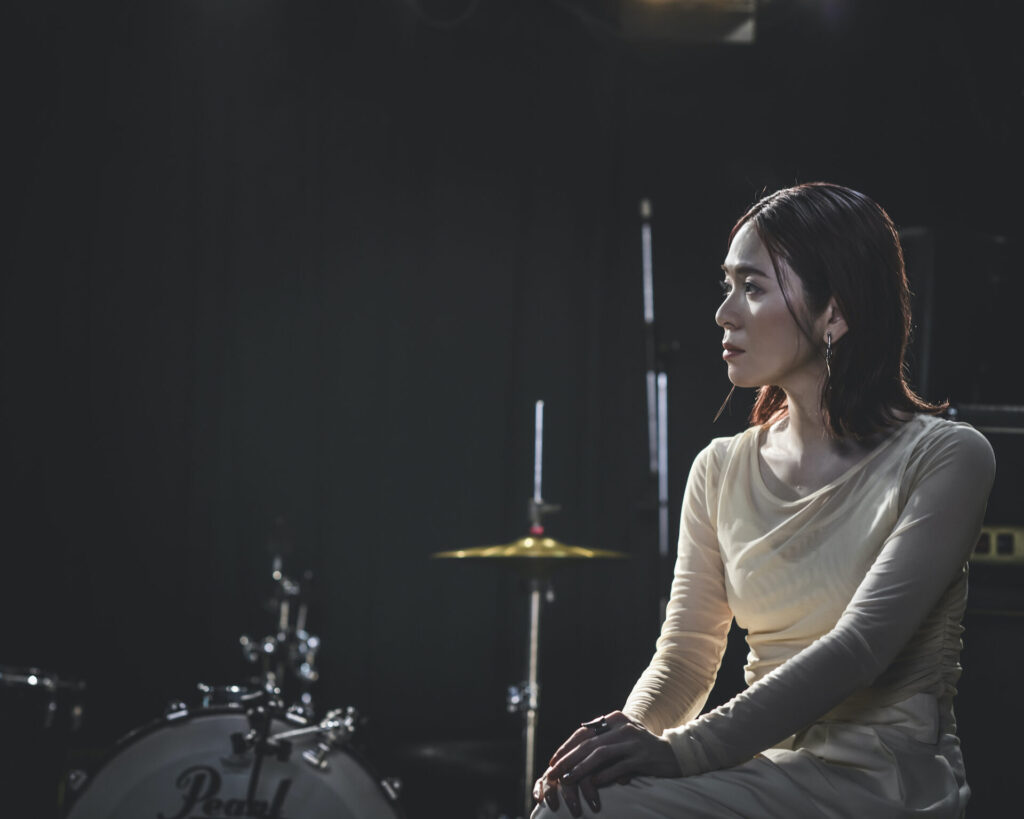
“If it’s a dream you can achieve on your own, then maybe it’s perfectly fine to see what you’ve accomplished as your dream. But if you want to make something happen with someone, then I think it’s essential to share what you hope for.” (MEGURI)
——Would you please share with us the upcoming plans for activities?
MEGURI: We’ll be doing a two-band live show with a band called Rega on August 2 in Osaka. Since last year, we’ve been organizing shows where we invite bands we’d really like to perform with. The first one was with LITE, and this one with Rega will be our fourth. Also, we’re planning to release a new full-length album this year.
——What do you get out of a joint gig with bands you like?
MEGURI: There are so many moments where I learn a lot from their techniques — like, “Oh wow, you’re really doing that there?” But more than anything, how cool their live shows are matters most. We only invite bands that we truly think are cool.
Shigeta: I’m omnivorous when it comes to music. I’ve listened to a wide range of genres, from classic jazz and modern music to hard rock and hip-hop. But the kind of music I want to keep on heavy rotation is the kind that makes me want to dance. So, for me, paranoid void and LITE are dance music.
MEGURI: I’m so glad to hear that.
Shigeta: So, I hope they play in a venue where people have enough space to move freely and dance without hesitation. That’s the kind of place I always look for when I organize events.
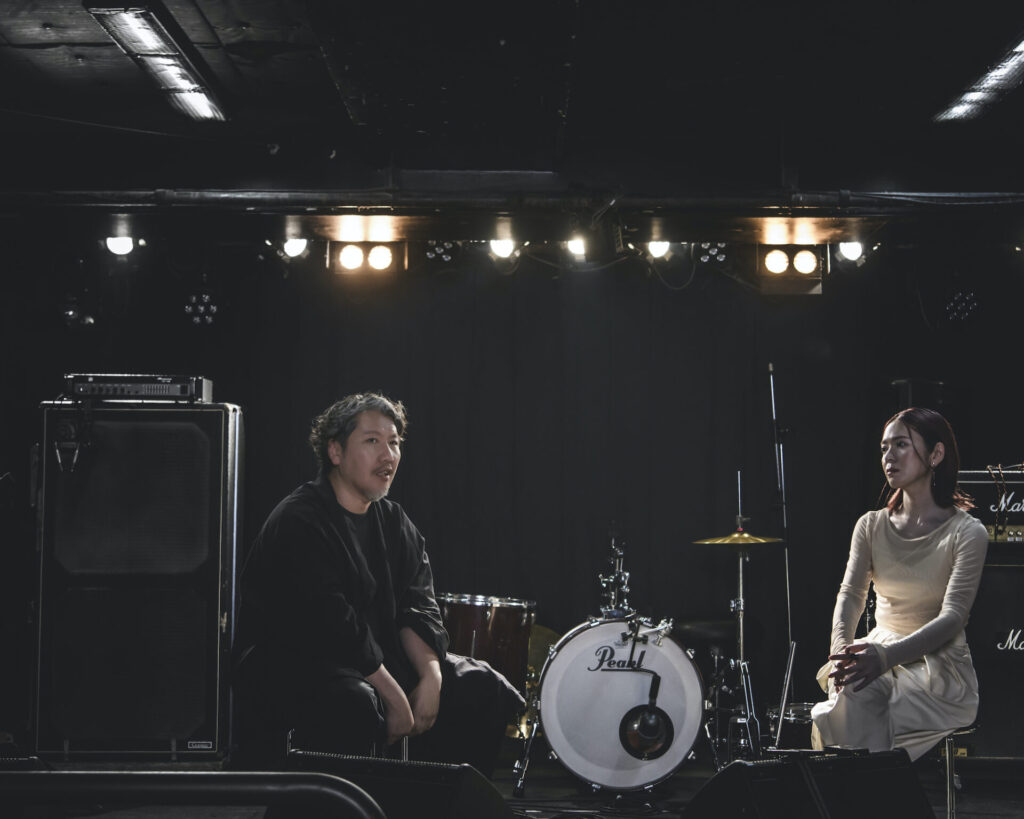
——As we come to the end of our dialogue, is there any particular message you’d like to share with us?
Shigeta: Many people see a dream as a specific goal you set and eventually achieve. But in reality, there are plenty of people who struggle to even set the goal and end up feeling self-conscious about that fact. As Ms. MEGURI’s story showed, however, it’s perfectly fine to start by following your interests and curiosities. By taking steady steps forward, including meeting new people, your goals and the path toward them will naturally come into view. If the message came through to the readers, I’d be very happy.
——Having a dream or achieving a dream — which do you think is more important?
Shigeta: That’s a tough question.
MEGURI: I feel like I should probably say “having a dream” here (laughs).
Shigeta: Even if you have a dream, it can really hurt when you can’t achieve it. No one wants to get hurt that way. So, I think it’s perfectly fine to call what you’ve accomplished your dream. Ms. MEGURI also said she didn’t set out dreaming of where she is now.
MEGURI: That’s right. But recently, the president of our label has been telling me over and over that if I want to bring the people around me on board and work together, I need to share my dreams with them. If I don’t articulate my dreams, it’s hard for anyone to make a plan, let alone feel motivated to support me. If it’s a dream you can achieve on your own, then maybe it’s perfectly fine to see what you’ve accomplished as your dream. But if you want to make something happen with someone, then I think it’s essential to share what you hope for. That’s something I’ve been thinking about a lot lately.
Shigeta: When you’re working with others by sharing the process to achieve a dream, it’s surely important to articulate your vision. I’ve come to realize that myself recently because, now that I’m older and have experienced many things, I finally feel confident in sharing a vision that’s true to myself. If someone had asked me to lay out a vision five or ten years ago, it probably would have just been pie in the sky.
What I found especially inspiring in Ms. MEGURI’s story today is how performing in front of audiences and collaborating with others helped her gradually clarify the dreams she wants to pursue. Her story deeply resonates with me — it shows that we can only fully understand ourselves through connections and relationships with others.
MEGURI: That’s absolutely true. Thank you for summarizing it so well in the end.
Shigeta: Let’s keep working together to realize the festival as well.

Note:
Montreux Jazz Festival
Started in 1967, the Montreux Jazz Festival is held every July in Montreux, one of the most famous summer resorts in Switzerland. Originally focused on jazz, the festival has expanded over the years to cover a wide range of genres, including blues, rock, and reggae, making it one of the largest music events in the world. With a history spanning over 50 years, many live recordings from the festival have been released as albums. In Japan, saxophonist Sadao Watanabe’s 1970 live performance album, Sadao Watanabe at the Montreux Jazz Festival, is regarded as a masterpiece. The festival now also takes place outside Switzerland, including in Japan, and paranoid void performed at the China edition held in Hangzhou, China, in 2024.
will / paranoid void
Profile
-
MEGURI
MEGURI was born in Nagano Prefecture. She formed the instrumental band paranoid void in Osaka in 2013. She plays guitar in the band. In addition to performing live across Japan, the band has toured internationally since 2015, starting in Malaysia and continuing to Canada, the United States, the United Kingdom, Taiwan, and other countries. Alongside her music activities, she is also active as a writer.
-
Masakazu Shigeta
After working as an engineer in the music industry, Shigeta began his career as a cosmetics developer in 2001. From 2004, he worked on various cosmetics brands in the healthcare business of Nitto Denka Kogyo Co., Ltd., a metal surface treatment company founded by his great-grandfather. In 2017, he founded “OSAJI,” a skincare lifestyle brand, and became its brand director. In 2021, as a new store of “OSAJI,” he produced “kako,” a specialized shop for home fragrances and perfume in Kuramae, Tokyo. In the following year, he opened a combined shop of “OSAJI,” “kako,” and a restaurant, “enso,” in Kamakura, Kanagawa. In 2023, utilizing the technical skill of Nitto Denka Kogyo, he launched a pottery brand, “HEGE,” and in October of the same year, he became CEO of OSAJI Inc. He also has published books on beauty and held cooking classes and events focusing on food, which is the origin of beauty. He released a collaborative album with F.I.B JOURNAL called “Gensho hyphenated” in November 2024 and has been expanding the range of activities.
Publications
Taberu Biyou (Eating for Beauty) (SHUFU TO SEIKATSU SHA, 2024)
42-Sai ni Nattara Yameru Biyou, Hajimeru Biyou (Beauty cares to quit and start when you turn 42) (Takarajimasha, 2022)
Information
paranoid void
Formed in 2013, paranoid void is a three-piece all-female instrumental band based in Osaka, performing both in Japan and overseas. The members are guitarist MEGURI, drummer Mipow, and bassist Yu-ki.
Drawing on their diverse creative backgrounds, they combine their unique perspectives and imaginations to craft a sharp, exhilarating sound that is uniquely their own. Since 2024, they have been organizing a self-produced joint live event series titled Showtopia. The fourth edition will take place on August 2 at LIVE SPACE CONPASS in Osaka, with Rega appearing as the guest act. The band has released two singles, one mini-album, and two full-length albums to date, with their third full-length album slated for release in 2025.
https://www.paranoidvoid.com
https://www.paranoidvoid.com/20250802
-
Photographs:Eisuke Komatsubara
-
Text:Masahiro Kamijo
-
Make-up:Yuya Goto (OSAJI)
-
Location:CHIKAMATSU
NEWS LETTER
理想論 最新記事の
更新情報をお届けします
ご登録はこちら
ご登録はこちら
メールアドレス
ご登録ありがとうございます。
ご登録確認メールをお送りいたします。
